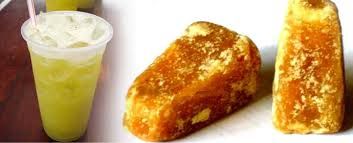Discovering Sugarcane Products: Versatile Uses and Profits
The expedition of sugarcane items reveals an amazing array of applications that expand well beyond the familiar realm of sugar. As we analyze the multifaceted payments of sugarcane, one might ask yourself exactly how these diverse uses can reshape sectors and way of livings in a rapidly advancing world.
Introduction of Sugarcane
Although sugarcane is usually associated mainly with sugar production, it is a versatile crop with an abundant background and many applications. Cultivated in subtropical and tropical regions, sugarcane thrives in well-drained soils and cozy climates, adding substantially to many economies worldwide. This perennial turf, coming from the genus Saccharum, can expand to elevations of as much as 4 meters, showcasing its robust nature.
Past its key function in sugar removal, sugarcane offers as an essential source for numerous by-products. The fibrous residue, called bagasse, is utilized for creating bioenergy and as a raw material for producing paper and eco-friendly items. Additionally, molasses, a byproduct of sugar refining, is abundant in nutrients and frequently made use of in animal feed and fermentation processes.
Sugarcane also plays a considerable function in standard medications and social practices in several regions, showing its significance past commercial use (sugarcane product). Additionally, with the increasing concentrate on lasting farming practices, sugarcane is being explored for its possibility in biofuels and carbon capture, placing it as a principal in the change towards sustainable power sources. Therefore, the flexibility of sugarcane extends far past the confines of sugar manufacturing
Sugarcane in Food Products


Beyond sugar, sugarcane is the resource of energy-rich items such as jaggery and panela, which are conventional unrefined sugars utilized in numerous cultures. These items not just sweeten foods yet also impart one-of-a-kind tastes and dietary advantages.
Sugarcane juice, a revitalizing drink enjoyed in several exotic areas, showcases the plant's versatility. It is commonly consumed fermented or fresh into alcoholic drinks like rum.
Furthermore, sugarcane fibers, known as bagasse, are often made use of to develop food packaging products, emphasizing the eco-friendly benefits of sugarcane processing. Generally, sugarcane's contribution to food items is multifaceted, enhancing tastes, offering nutritional worth, and playing a significant duty in cooking traditions all over the world.
Industrial Applications of Sugarcane
In different industries, the convenience of sugarcane prolongs far past its cooking applications. Sugarcane functions as an essential basic material in the production of biofuels, specifically ethanol, which is increasingly used as an eco-friendly energy resource. This biofuel is obtained via fermentation and purification procedures, giving a sustainable alternative to nonrenewable fuel sources and adding to a reduction in greenhouse gas discharges.

In addition, the sugarcane market has actually discovered applications in pharmaceuticals, where its components are utilized in the formulation of numerous medical items. The natural compounds removed from sugarcane exhibit antimicrobial and antioxidant residential properties, improving the effectiveness of certain medications.
Lastly, sugarcane is integral to the production of a variety of chemicals, click this consisting of glycerol and natural acids, which are crucial for numerous industrial processes. These applications highlight sugarcane's considerable role in promoting commercial sustainability and innovation.
Ecological Benefits of Sugarcane
The multifaceted applications of sugarcane not only enhance commercial procedures but likewise add considerably to environmental sustainability. As an eco-friendly source, sugarcane farming plays an important function in carbon sequestration, soaking up considerable quantities of carbon dioxide from the ambience. This procedure assists mitigate climate adjustment by decreasing greenhouse gas concentrations.
In addition, sugarcane by-products, such as bagasse and molasses, provide environmentally friendly options to traditional materials. click here for more Bagasse, the fibrous deposit after juice extraction, can be made use of as a biomass fuel, reducing dependence on nonrenewable fuel sources and promoting cleaner power sources. In addition, molasses can be transformed right into bioethanol, better sustaining sustainable power campaigns.
Sugarcane farming additionally promotes biodiversity and dirt wellness. Sustainable farming practices, such as intercropping and plant rotation, improve dirt fertility and decrease disintegration. The crop's deep root system aids in water retention, therefore supporting neighborhood ecosystems and improving strength versus dry spell.
Health Advantages of Sugarcane
Rich in necessary nutrients and all-natural sugars, sugarcane uses many wellness benefits that make it a useful enhancement to a well balanced diet. Its high fiber content aids in digestion, advertising intestine wellness and preventing bowel irregularity. In addition, sugarcane gives anti-oxidants, which combat oxidative tension and may decrease the risk of persistent conditions.
Furthermore, sugarcane juice is known for its hydrating residential properties, making it a superb drink choice, especially in warm environments. The natural sugars present in sugarcane offer a quick energy boost, beneficial for athletes and those engaged in physical activities. It likewise has essential nutrients, such as vitamin C, magnesium, potassium, and calcium, which add to general wellness.
Studies recommend that sugarcane may assist control blood sugar degrees, making it a preferable sugar for individuals with diabetes when consumed in small amounts. Furthermore, its anti-inflammatory homes can support liver wellness and help in cleansing.
Final Thought
In conclusion, sugarcane emerges as a very flexible plant with substantial contributions to different markets. The byproducts of sugarcane, such as bagasse and molasses, help with green practices, while its health and wellness advantages boost overall wellness.
Although sugarcane is often connected mostly with sugar manufacturing, it is a flexible plant with an abundant background and numerous applications.Beyond its main duty in sugar removal, sugarcane offers as an essential source for various spin-offs. Mostly recognized for producing sugar, sugarcane is changed right into granulated sugar, brown sugar, and molasses, each serving distinct culinary functions.Rich in all-natural sugars and essential nutrients, sugarcane provides various health and wellness advantages that make it a beneficial addition to a balanced diet. The all-natural sugars existing check my source in sugarcane provide a fast energy increase, beneficial for athletes and those involved in physical tasks.